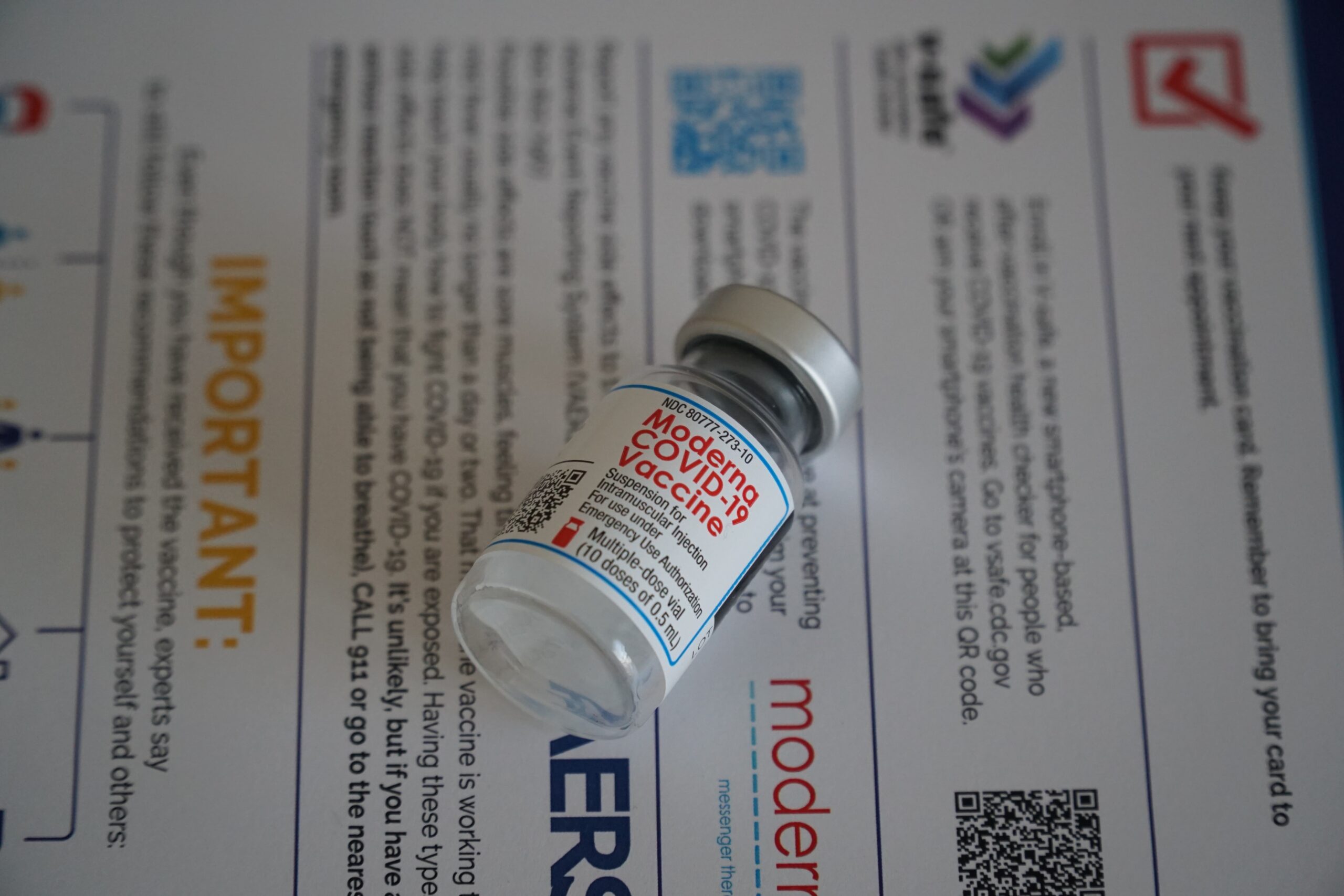Moderna sues Pfizer and BioNTech over COVID-19 vaccine patents.
In early 2020, a virus named COVID-19 made its way around the world, affecting the lives of every single individual as it rapidly evolved into a global pandemic. In response to this serious issue, countries closed their borders, and their people were ordered into lockdown as medical experts worked tirelessly to find a sustainable solution to the COVID-19 virus.
In late 2020, the much-anticipated COVID-19 vaccine developed by Pfizer-BioNTech was approved by the Food and Drug Administration (FDA) Emergency Use Authorizations (EUA) for release in the United States. A week after, the FDA approved the administration of the Moderna COVID-19 vaccine in the United States.
The release of these vaccines in the marketplace proved very lucrative for the corporations, as the New York Times reported that Pfizer generated over $3.5 billion in revenue in the first quarter preceding the release of its COVID-19 vaccine. In comparison, CNBC reported that Moderna sold $5.9 billion of its COVID-19 vaccine within its first quarter of release. Given the profitability of the COVID-19 vaccine, there is a legitimate interest in protecting the ownership of this invention. The law that covers this core interest can be applied by patent law.
What is Patent Law?
Patent law is the sub-area of intellectual property law that provides exclusive rights to inventors over the use or sale of their creations. Patent law protects the inventor’s rights to sue and file patent infringement claims against third-party infringers for damages caused by the infringement. A patent infringement claim also generally includes a demand for injunction relief to stop the infringers from further using the protected invention.
What Are the Elements of a Patent Infringement Claim?
A patent infringement claim is a federal cause of action that allows a U.S. patent owner to sue another party infringing on their invention. Generally, a claimant must prove two things to claim a valid patent infringement claim: that they own a valid patent and that the third party infringes on their valid patent.
1. Ownership of a Valid Patent
To establish this requirement, the claimant can provide a U.S. patent granted on the invention that they are alleging is being infringed upon by a third party. A U.S. patent registration could clearly show the owner of the patent, and it provides a presumption that the invention has a valid patent.
In their lawsuit against Pfizer/BioNTech, Moderna identifies themselves as the inventor of mRNA technology, which they claim warrants a valid patent. Under the confines of patent law, vaccines are eligible to be granted patents. In an unexpected move by the Biden Administration, it is supporting the waiving of patent protections specifically for COVID-19 vaccines in hopes that it would boost supplies for everybody in the world.
Moderna claims they had filed patents for the mRNA technology from 2010 to 2016, even before the global pandemic.
2. Infringement of the Patent by the Defendant
The second part of a valid patent infringement claim is for the claimant to provide the following: the infringer’s identity and the infringement’s specific act against the inventor’s creation.
In their claim, Moderna has named Pfizer/BioNTech as the infringers of their mRNA technology. Moderna alleges explicitly in their lawsuit that Pfizer/BioNTech copied their mRNA technology in developing the Pfizer/BioNTech version of the COVID-19 vaccine.
What is Moderna Alleging in Their Lawsuit Against Pfizer/BioNTech?
Moderna alleges that Pfizer/BioNTech had copied mRNA technology without permission in their claim. Moderna had patented the mRNA technology between 2010 and 2016, well before COVID-19 had developed into a severe medical issue that spurred into a global pandemic in early 2020.
Moderna is explicitly alleging that their mRNA technology served as a basis for Pfizer/BioNTech’s development of their COVID-19 vaccine. Moderna further asserts that when the COVID-19 pandemic hit, Pfizer/BioNTech did not have the same experience developing vaccines aimed explicitly at infectious diseases. Thus, Pfizer/BioNTech allegedly copied Moderna’s mRNA technology.
What is Moderna Seeking in Their Claim Against Pfizer/BioNTech?
Generally, patent claimants seek monetary compensation for the damages they allege against their infringers. The Moderna claim filed in the U.S. District Court in Massachusetts against Pfizer/BioNTech is no different, as their lawsuit seeks undetermined monetary damages.
In addition to the U.S. federal court filing, Moderna has also filed a separate but related lawsuit alleging the same patent infringement against Pfizer/BioNTech in the Regional Court of Duesseldorf in Germany.
Are you looking for an affordable intellectual property attorney to help you with your inventions? Book a consult with the Board-Certified Intellectual Property Attorney at Nadkarni Law to learn how the firm can help you.





